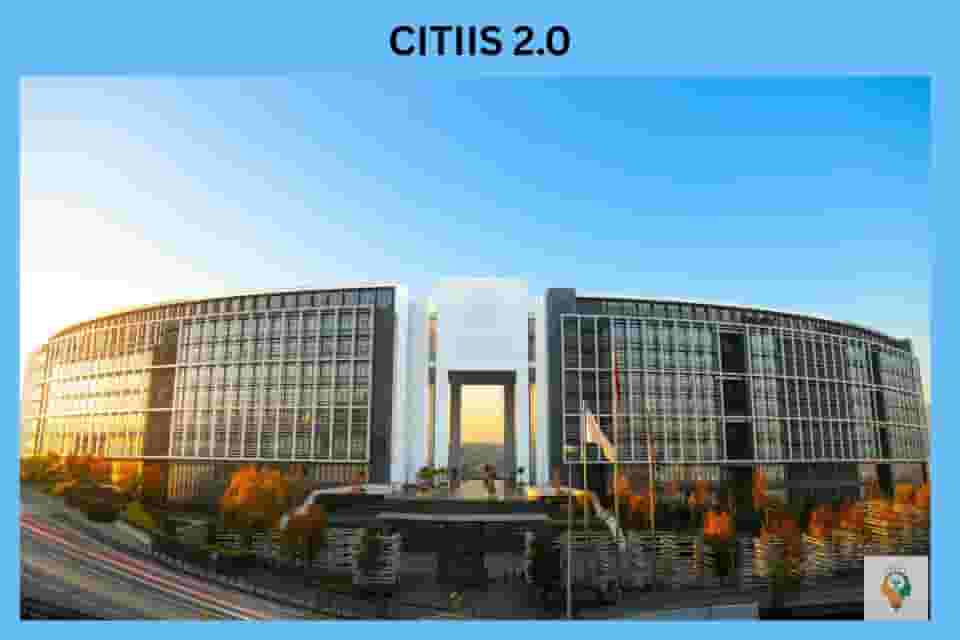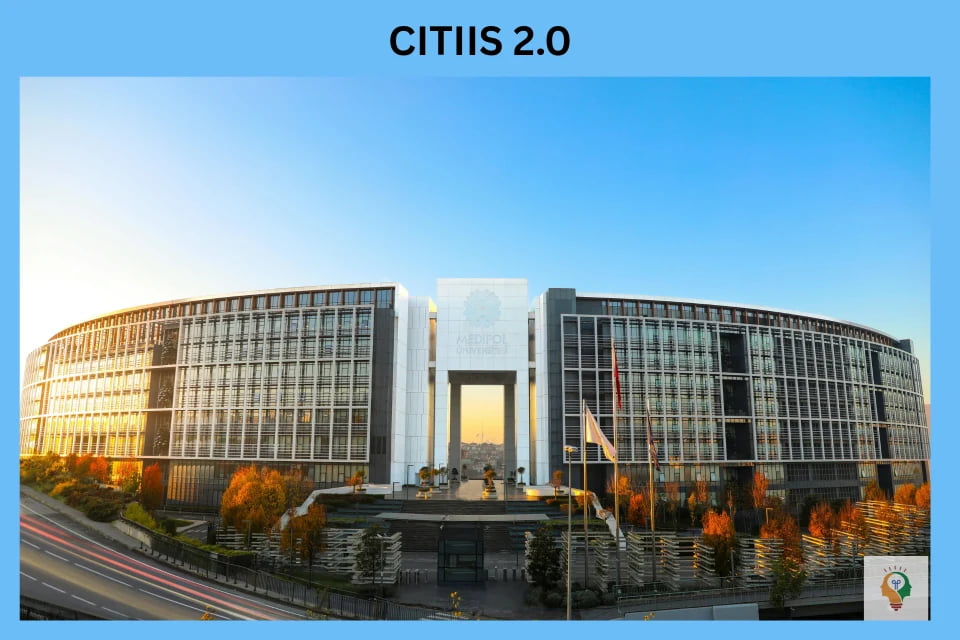Inside CITIIS 2.0: How India Is Building Smarter, Greener, Future-Ready Cities?
Updated: 15-10-2025 at 3:30 PM
1k


🚀
10M+
Reach – Join the
Movement!
❓
50K+
Queries Answered
- Ask Yours Today!
🔥
1.5L+
Users Benefiting
- Why Not You?
🚀
10M+
Reach – Join the
Movement!
❓
50K+
Queries Answered
- Ask Yours Today!
🔥
1.5L+
Users Benefiting
- Why Not You?
The government of India launched a program called CITIIS 2.0. The CITIIS 2.0 full form is City Investments to Innovate, Integrate, & Sustain 2.0. The programme has been launched to drive rapid urbanisation in cities across the vast country of India. The program has been launched in partnership with the French Development Agency (AFD), German Development Bank (KfW), European Union (EU), and the National Institute of Urban Affairs (NIUA).
Read the article to learn more about the CITIIS 2.0 Mission, ranging from its objectives and components to information on the CITIIS 2.0 cities list as mentioned in the CITIIS 2.0 guidelines, and also answers to popular questions like ‘CITIIS 2.0 under which ministry?’.
Overview
The table below summarises some key points about the CITIIS 2.0 scheme that one should know about.
| Name of the scheme | CITIIS 2.0 scheme |
|---|---|
| CITIIS 2.0 full form | City Investments to Innovate, Integrate, & Sustain 2.0 |
| CITIIS 2.0 under which ministry? | Ministry of Housing and Urban Affairs |
| Objective | To drive rapid urbanisation in cities across the vast country of India |
What Is City Investments to Innovate, Integrate, & Sustain 2.0?
The CITIIS 2.0 is a government initiative launched under the Ministry of Housing and Urban Affairs in 2015; the CITIIS 2.0 full form is City Investments to Innovate, Integrate, & Sustain 2.0. The aim behind launching the CITIIS 2.0 mission is to attract investments and drive rapid urbanisation in Indian cities. This program is part of the Smart Cities Mission, which is dedicated to sustainable and climate-friendly alternatives to development. CITIIS 2.0 will have four themes of Smart Cities Mission:
-
Sustainable mobility
-
Public open spaces
-
Urban e-governance and ICT
-
Social and organisational innovation for low-income establishments
Objectives
CITIIS 2.0 is a unique initiative that can only be understood after understanding its objectives, as mentioned in the CITIIS 2.0 guidelines, some of which are as follows:
-
The CITIIS 2.0 Mission aims to develop Indian cities with a special focus on waste management and sustainable measures.
-
The funding for the program comes from a loan from the French Development Agency (AFD), the German Development Bank (KfW), and a technical assistance grant from the European Union (EU).
-
All the cities selected under this mission go through a competitive screening procedure as mentioned in the CITIIS 2.0 guidelines.
Components Of The CITIIS 2.0 Mission
The components of the CITIIS 2.0 Mission are laid out below in detail for one’s better understanding:
-
Component 1: 18 cities are provided with financial and technical aid with a special focus on waste management. The 18 CITIIS 2.0 cities list is Agartala, Agra, Bareilly, Belagavi, Bilaspur, Guwahati, Jabalpur, Jaipur, Madurai, Muzaffarpur, New Town Kolkata, Panaji, Rajkot, Srinagar, Thiruvananthapuram, Thanjavur, Udaipur, and Ujjain.
-
Component 2: Here, special focus is on sustainable and climate reformative tech-friendly options at the state level. The state authorities, in collaboration with the Municipal Corporation, create action plans on urban flooding, heat management, or water security, and ways of detecting climate indicators like land, air, and water. The 21 CITIIS 2.0 cities list is Andaman and Nicobar Islands, Andhra Pradesh, Arunachal Pradesh, Assam, Chhattisgarh, Goa, Gujarat, Jammu & Kashmir, Jharkhand, Kerala, Madhya Pradesh, Manipur, Meghalaya, Mizoram, Nagaland, Odisha, Rajasthan, Sikkim, Telangana, Tripura, and Uttarakhand.
-
Component 3: In component 3, the National Institute of Urban Affairs (NIUA) is responsible for carrying out intervention plans at all centre, state, and city levels.
Significance
The CITIIS 2.0 mission will work alongside already running related projects like the National Mission on Sustainable Habitat, AMRUT 2.0, Swachh Bharat Mission, and Smart Cities Mission. The mission will also contribute to national and international conferences like the COP26.
What Initiatives are Taken by the Government of India for Urban Development?
The Indian government has introduced several initiatives for urbanisation. The following are some of the popular government initiatives.
1. Atal Mission For Urban Rejuvenation and Urban Transformation (AMRUT)
AMRUT was launched in 2015 by the government of India. The main objective of the govt mission is to work on improving the infrastructure in cities so that the quality of life of the people can reach new heights.
2. Pradhan Mantri Awas Yojana- Urban (PMAY-U)
The Pradhan Mantri Awas Yojana- Urban (PMAY-U) is a flagship initiative that began on 25 June 2015 and is managed by the Ministry of Housing and Urban Affairs (MoHUA) to address the country's housing needs, aiming to provide affordable housing to the urban poor.
3. Integrated Command and Control Centres
The Integrated Command and Control Centres were established for various things like grievance redressal and surveillance, but then were transformed and used during the COVID-19 pandemic in around 45 cities.
4. Climate Smart Cities Assessment Framework 2.0
The Climate Smart Cities Assessment Framework 2.0 was launched under MoHUA in 2020. This initiative aims to help Indian cities adopt climate-friendly ways of development, hence aligning with the Sustainable Development Goals (SDGs).
5. TULIP
The Urban Learning Internship Programme (TULIP) was introduced in 2021 by the Ministry of Housing and Urban Affairs to boost the employability of young graduates in our country through structured training and mentorship.
Conclusion
The City Investments to Innovate, Integrate, & Sustain 2.0 (CITIIS 2.0) is one of the most fruitful missions launched by the government for the equal development of cities across India.
Stay updated with Jaagruk Bharat to get the latest information on government schemes and more, and reach out to us via our community page if you have any questions.
0
0
1k
0
0
1k Views
0
No comments available





Our Company
Home
About
T&C
Privacy Policy
Eula
Disclaimer Policy
Code of Ethics
Contact Us
Cancellation & Refund Policy
Categories
Women
Insurance
Finance
Tax
Travel
Transport & Infrastructure
Food
Entertainment
Communication
Government ID Cards
E-commerce
Traffic guidelines
Miscellaneous
Housing and Sanitation
Sports
Startup
Environment and Safety
Education
Agriculture
Social cause
Employment
Disclaimer: Jaagruk Bharat is a private organization offering support for documentation and government scheme access. We are not affiliated with any government body. Official services are available on respective government portals. Our goal is to make processes easier and more accessible for citizens.
All Copyrights are reserved by Jaagruk Bharat